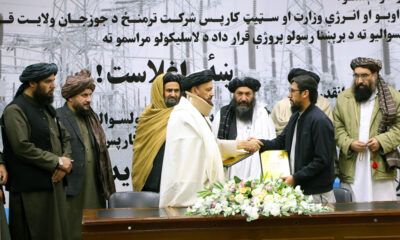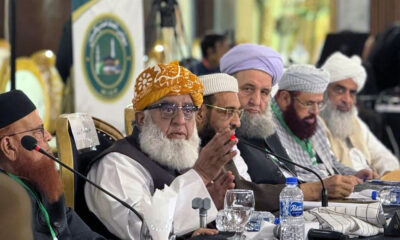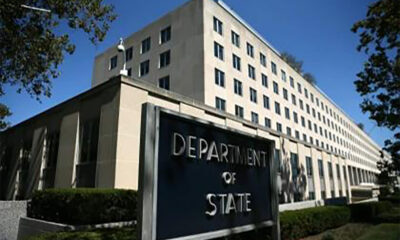World
Lebanon front with Israel heats up, stoking fears of wider war

Weeks of hostilities across the Lebanese-Israeli border have escalated, with growing casualties on both sides and a war of words fuelling concerns of a widening conflict between Israel and the Iran-backed Lebanese group Hezbollah.
Israeli strikes killed two people in south Lebanon on Monday, according to a first-responder organization affiliated to the Hezbollah-allied Amal Movement.
On the Israeli side, a Hezbollah missile attack on Sunday wounded several workers from the Israel Electric Company and one died of his wounds on Monday, the firm said.
Hezbollah has been trading fire with Israeli forces since its Palestinian ally Hamas went to war with Israel on Oct. 7. Reuters reported.
The exchanges mark the deadliest violence at the border since Israel and Hezbollah fought a month-long war in 2006. So far, more than 70 Hezbollah fighters and 10 civilians have been killed in Lebanon, and 10 people including seven troops have been killed in Israel. Thousands more on both sides have fled shelling.
Until now, violence has largely been confined within a band of territory on either side of the border.
Israel has said it does not want war on its northern front as it seeks to crush Hamas in the Gaza Strip, while sources familiar with Hezbollah’s thinking said its attacks have been designed to keep Israel forces busy while avoiding all-out war.
The United States has said it doesn’t want conflict to spread around the region, sending two aircraft carriers to the area to deter Iran from getting involved. But that has not stopped the escalating rhetoric from Hezbollah and Israel.
Hezbollah leader Sayyed Hassan Nasrallah said on Saturday the Lebanon front would “remain active”, and said there was “a quantitative improvement” in the pace of the group’s operations.
Israeli Prime Minister Benjamin Netanyahu warned Hezbollah on Monday not to broaden its attacks.
“This is playing with fire. Fire will be answered with much stronger fire. They should not try us, because we have only shown a little of our strength,” he said in a statement.
Asked at a news conference on Saturday about what Israel’s red line was, Israeli Defence Minister Yoav Gallant said: “If you hear that we have attacked Beirut, you will understand that Nasrallah has crossed that line.”
Lebanon’s caretaker Prime Minister Najib Mikati, in an interview with Al Jazeera on Sunday, said he was reassured by the “rationalism” of Hezbollah so far.
“We are preserving self-restraint, and it’s up to Israel to stop its ongoing provocations in south Lebanon,” he said.
Lebanon took years to rebuild from the 2006 war and can ill afford another one, four years into a financial crisis that has impoverished many Lebanese and paralyzed the state.
Israel has long seen Hezbollah as the biggest threat along its borders. The 2006 war killed 1,200 people in Lebanon, mostly civilians, and 157 Israelis, mostly soldiers.
U.S. Defense Secretary Lloyd Austin characterized the violence as “tit-for-tat exchanges between Lebanese Hezbollah and Israeli forces in the north”, predicting Israel would remain focused on the threat from Hezbollah “for the foreseeable future”.
“And certainly no one wants to see another conflict break out in the north on Israel’s border in earnest,” he told reporters in Seoul, although he said it was hard to predict what might happen.
Mohanad Hage Ali of the Carnegie Middle East Center said: “I can definitely see a wider escalation but I am not sure about a full conflict that nobody wants”.
“Nobody wants one on one hand, and I think the U.S. is playing a strong role keeping things under control,” he said.
World
Trump administration recalls dozens of diplomats in ‘America First’ push
The State Department declined to name those affected, with a senior official calling the recalls a routine step for new administrations.
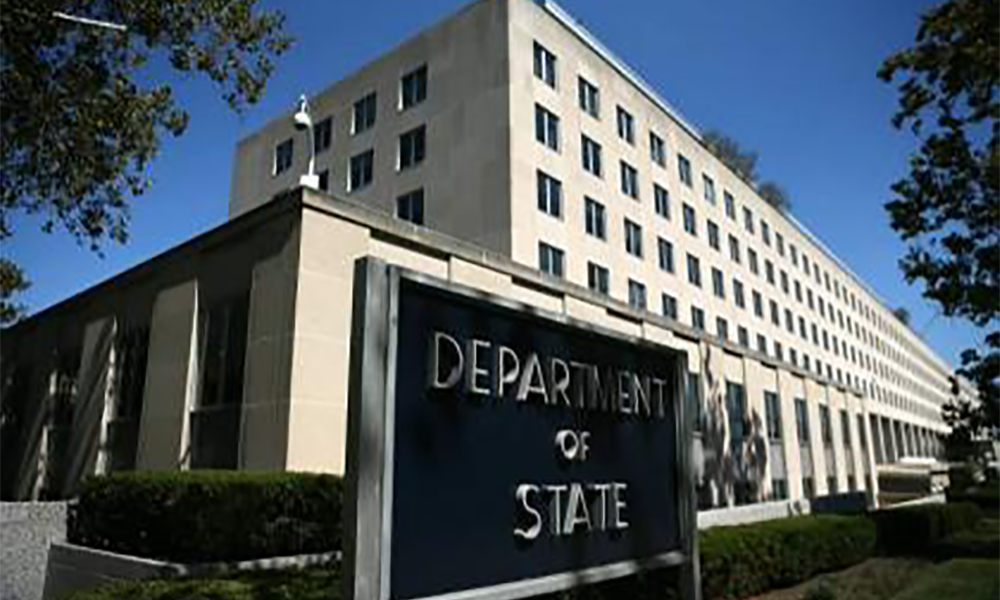
The Trump administration is recalling nearly 30 U.S. ambassadors and senior career diplomats to ensure embassies align with President Donald Trump’s “America First” agenda, a move critics say could weaken U.S. credibility abroad.
The State Department declined to name those affected, with a senior official calling the recalls a routine step for new administrations. The official said ambassadors are the president’s representatives and must advance his policy priorities.
However, officials familiar with the matter said the recalls largely affect career Foreign Service officers posted to smaller countries, where ambassadors are traditionally non-partisan. Those ordered back to Washington were encouraged to seek other roles within the State Department.
The American Foreign Service Association said some diplomats were notified by phone without explanation, calling the process “highly irregular” and warning that such actions risk harming morale and U.S. effectiveness overseas. The State Department did not respond to the criticism.
The move, first reported by Politico, comes as Trump seeks to place loyalists in senior roles during his second term, after facing resistance from the foreign policy establishment in his first.
Democrats have criticised the decision, noting that around 80 ambassadorial posts remain vacant. Senator Jeanne Shaheen said the recalls undermine U.S. leadership and benefit rivals such as China and Russia.
World
Trump plans expanded immigration crackdown in 2026 despite backlash
The plans come amid rising public unease over aggressive tactics, including neighborhood raids and the detention of some U.S. citizens.

U.S. President Donald Trump is preparing to significantly expand his immigration crackdown in 2026, backed by billions of dollars in new funding, even as political opposition grows ahead of next year’s midterm elections.
ICE and U.S. Customs and Border Protection are set to receive an additional $170 billion through September 2029, enabling the administration to hire thousands of new agents, expand detention facilities and increase enforcement actions, including more workplace raids. While immigration agents have already been surged into major U.S. cities, many economically critical workplaces were largely spared in 2025.
The plans come amid rising public unease over aggressive tactics, including neighborhood raids and the detention of some U.S. citizens. Trump’s approval rating on immigration has fallen from 50% in March to 41% in mid-December, according to recent polling.
The administration has also revoked temporary legal status for hundreds of thousands of Haitian, Venezuelan and Afghan migrants, expanding the pool of people eligible for deportation.
About 622,000 immigrants have been deported since Trump took office in January, short of his goal of 1 million deportations per year.
White House border czar Tom Homan said arrests will increase sharply next year as staffing and detention capacity grow. Critics warn that expanded workplace enforcement could raise labor costs and deepen political and economic backlash ahead of the elections.
World
US, Russian officials meet in Florida for more Ukraine talks
Kyiv says it will not cede land that Moscow’s forces have failed to capture in nearly four years of war.
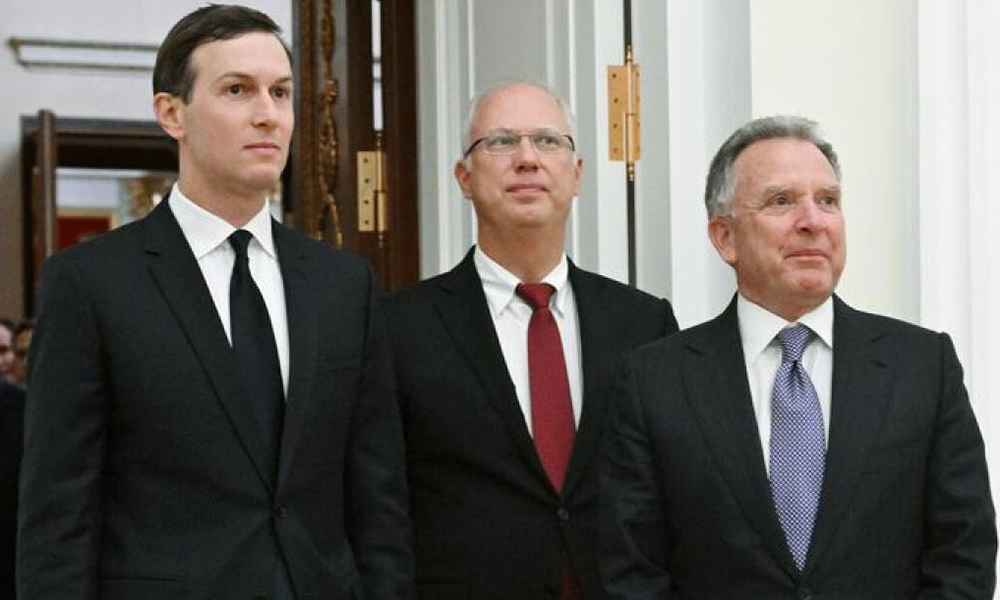
U.S. negotiators met Russian officials in Florida on Saturday for the latest talks aimed at ending Russia’s war in Ukraine, as President Donald Trump’s administration tries to coax an agreement out of both sides to end the conflict, Reuters reported.
The Miami meeting followed U.S. talks on Friday with Ukrainian and European officials, the latest discussions of a peace plan that has sparked some hope of a resolution to the conflict that began when Russia launched its full-scale invasion in February 2022.
Russian President Vladimir Putin’s special envoy Kirill Dmitriev told reporters after meeting U.S. special envoy Steve Witkoff and Trump’s son-in-law Jared Kushner that the talks were constructive and would continue on Sunday. A White House official said the talks had concluded for the day.
“The discussions are proceeding constructively. They began earlier and will continue today, and will also continue tomorrow,” Dmitriev said.
Marco Rubio, Trump’s top diplomat and national security advisor, had said he might also join the talks.
U.S., Ukrainian and European officials earlier this week reported progress on security guarantees for Kyiv as part of the talks to end the war, but it remains unclear if those terms will be acceptable to Moscow.
A Russian source told Reuters that any meeting between Dmitriev and the Ukrainian negotiators had been ruled out.
In Kyiv, Ukrainian President Volodymyr Zelenskiy said on Saturday that Ukraine would back a U.S. proposal for three-sided talks with the United States and Russia if it facilitated more exchanges of prisoners and paved the way for meetings of national leaders.
“America is now proposing a trilateral meeting with national security advisers — America Ukraine, Russia,” Zelenskiy told local journalists in Kyiv.
U.S. intelligence reports continue to warn that Putin intends to capture all of Ukraine, sources familiar with the intelligence said, contradicting some U.S. officials’ assertions that Moscow is ready for peace.
Putin offered no compromise during his annual press conference in Moscow, insisting that Russia’s terms for ending the war had not changed since June 2024, when he demanded Ukraine abandon its ambition to join NATO and withdraw entirely from four Ukrainian regions Russia claims as its own territory, Reuters reported.
Kyiv says it will not cede land that Moscow’s forces have failed to capture in nearly four years of war.
Ukraine’s top negotiator Rustem Umerov said U.S. and European teams on Friday held talks and agreed to pursue their joint efforts.
“We agreed with our American partners on further steps and on continuing our joint work in the near future,” Umerov wrote on Telegram of the discussions in the United States, adding that he had informed Zelenskiy of the outcome of the talks.
The White House did not immediately respond to a request for comment.
Rubio told reporters on Friday that progress has been made in discussions to end the war but there is still a way to go.
“The role we’re trying to play is a role of figuring out whether there’s any overlap here that they can agree to, and that’s what we’ve invested a lot of time and energy and continue to do so. That may not be possible. I hope it is. I hope it can get done this month before the end of the year.”
-

 Latest News2 days ago
Latest News2 days agoAfghanistan signs 30-year deal for marble mining in Daikundi
-

 Latest News4 days ago
Latest News4 days agoAfghan border forces prevent illegal entry of hundreds into Iran
-

 Latest News3 days ago
Latest News3 days agoPakistan summons Afghan diplomat over deadly attack in North Waziristan
-

 Latest News3 days ago
Latest News3 days agoAfghan health minister calls for medical cooperation between Kabul and New Delhi
-

 Latest News4 days ago
Latest News4 days agoJapan allocates nearly $20 million in humanitarian aid for Afghanistan
-

 Latest News3 days ago
Latest News3 days agoKarzai urges reopening of girls’ schools and universities for Afghanistan’s bright future
-
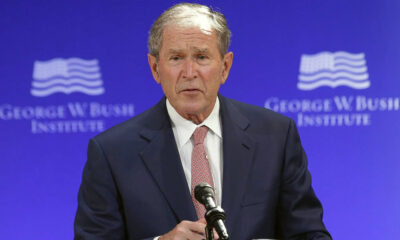
 Latest News2 days ago
Latest News2 days agoBush Institute criticizes Trump administration’s Afghan immigration freeze
-

 Health4 days ago
Health4 days agoIndia issues over 200 medical visas to Afghans in last four months


